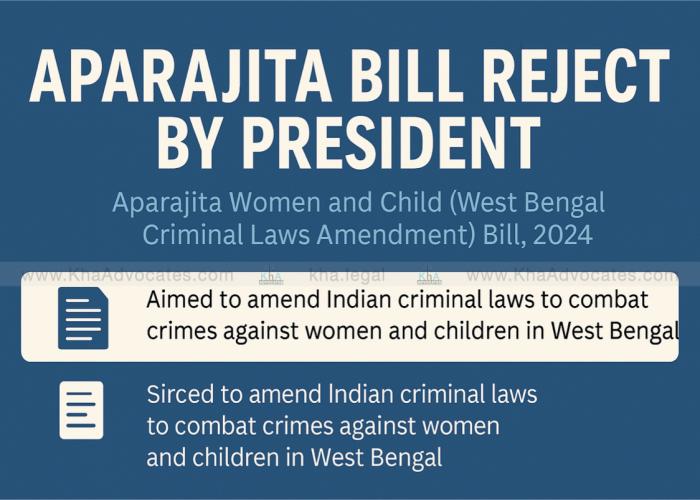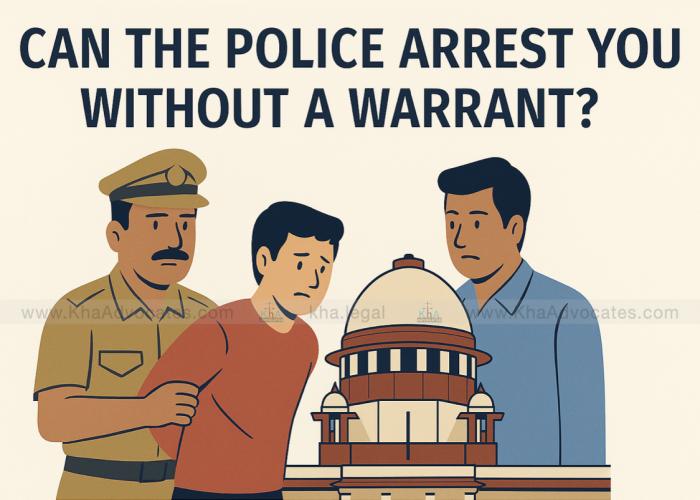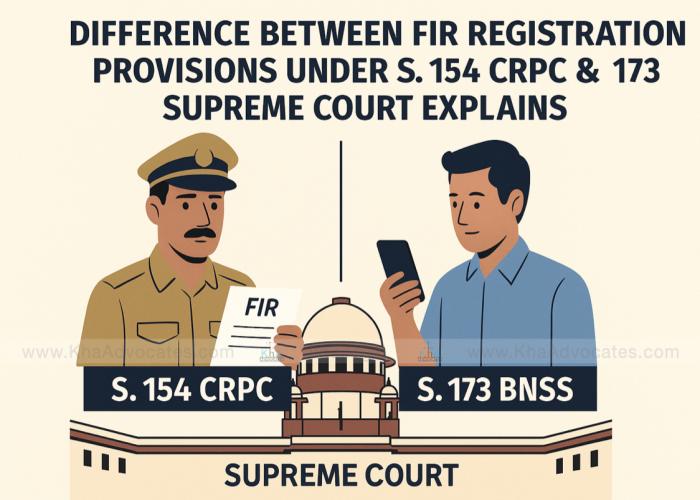

IntroductionIn a significant development, the President of India has rejected the Aparajita Women and Child (West Bengal Criminal Laws Amendment) Bill, 2024, which was passed by the West Bengal Legislative Assembly in February 2024. The bill aimed to introduce stricter state-specific amendments to the Indian Penal Code (IPC), Code of Criminal Procedure (CrPC), and Indian Evidence Act, particularly to combat crimes against women and children.While the move sparked political debate, it also raises important legal and constitutional questions. In this blog, we explore what the Aparajita Bill proposed, the reasons for its rejection, and its broader legal implications.What Was the Aparajita Bill?The Aparajita Bill, officially titled The West Bengal Criminal Laws (Amendment) Bill, 2024, sought to bring state-level amendments to central criminal laws with the following objectives:Speedy trial and sentencing in cases involving rape and sexual assault.Death penalty for gang rape and repeat offenders.Introduction of time-bound investigation and trial (within 30 days).Enhanced protection and rehabilitation provisions for victims.Making the use of electronic evidence more accessible in sexual offences.The bill was championed by the West Bengal government as a proactive step to protect women and children and reduce the rising crime rates against them.Why Was the Aparajita Bill Rejected?While the bill was passed by the West Bengal Assembly, it required Presidential assent because it sought to amend central laws like IPC and CrPC—subjects that fall under the Concurrent List of the Constitution.On July 2024, the President, after legal consultation with the Ministry of Home Affairs and the Union Law Ministry, withheld assent, citing multiple constitutional and procedural concerns:1. Conflict with Central LegislationThe bill proposed amendments to criminal laws that were recently overhauled by the Union Government through the Bharatiya Nyaya Sanhita (BNS), Bharatiya Nagarik Suraksha Sanhita (BNSS), and Bharatiya Sakshya Adhiniyam, replacing IPC, CrPC, and the Indian Evidence Act. State-level amendments now risk contradicting the new central framework.2. Overreach of Legislative PowersUnder Article 254 of the Constitution, any state law that contradicts a central law requires Presidential assent to prevail in that state. However, legal experts pointed out that the Aparajita Bill overlapped excessively with central legislative powers, particularly on matters of criminal procedure and evidence.3. Lack of Uniformity in Criminal JusticeThe President also considered the long-standing legal principle that criminal law must remain uniform across the country to ensure consistency in justice delivery. Allowing a state to impose different penalties or procedures could lead to disparities and constitutional challenges.Political & Social ReactionsThe rejection triggered sharp reactions from both the state government and opposition parties:West Bengal Government accused the Centre of undermining federalism and playing politics over women’s safety.Legal experts and opposition parties argued that a well-intentioned bill still needs to adhere to constitutional boundaries.Civil society and activists were divided—while many praised the intent of the bill, they also questioned the feasibility of certain provisions like the death penalty and fast-tracked trials without due process.Legal Takeaways for Citizens and LawmakersThe controversy around the Aparajita Bill offers valuable insights into how laws are made, challenged, and interpreted in a federal system:Laws on Concurrent List Need Delicate HandlingStates can legislate on concurrent matters like criminal law, but any amendment must not be repugnant to central laws without prior assent.Federal Structure and Checks & BalancesThe rejection underscores the role of the President as a constitutional check when state legislation could disrupt national legal uniformity.Need for Collaborative LawmakingInstead of unilateral state amendments, there’s a growing demand for cooperative federalism where states and the Centre work together to address regional concerns.What This Means for Victims and Legal PractitionersWhile the Aparajita Bill has been rejected, the legal needs of victims of gender-based crimes remain urgent. With the introduction of Bharatiya Nyaya Sanhita (BNS) and other criminal law reforms in 2024, the focus must now shift to:Implementation of new central lawsEffective legal representation for victimsTraining of police and judiciaryAccess to fast-track courtsRobust evidence handling and victim protectionConclusionThe Aparajita Bill’s rejection by the President is not just a political headline—it is a legal milestone. It reminds us of the delicate balance between state autonomy and national legal consistency. As India navigates new criminal laws under the BNS framework, proactive legal advice and robust advocacy will remain crucial.
Read More
IntroductionThe question “Can the police arrest you without a warrant?” is one of the most frequently asked by individuals concerned about their legal rights in India. While the Constitution of India guarantees the right to life and personal liberty under Article 21, the Code of Criminal Procedure (CrPC) lays down clear procedures governing arrest, both with and without a warrant.This article explores the legality, exceptions, and judicial scrutiny of arrests without warrants in India, supported by landmark Supreme Court judgments, case analysis, and remedies.Legal Basis for Arrest Without WarrantSection 41 of the CrPC, 1973This section allows police to arrest a person without a warrant in certain situations:If a person has committed a cognizable offenceIf the arrest is necessary to prevent further offenceTo ensure proper investigationTo prevent the person from tampering with evidence or threatening witnessesTo ensure presence in court proceedingsHowever, the Supreme Court has significantly narrowed the scope of such powers to prevent misuse and protect individual liberty.Key Supreme Court JudgmentsArnesh Kumar v. State of Bihar (2014)Held:Police must not arrest automatically in cases where punishment is less than 7 years. Arrest should follow a reasoned satisfaction, and the officer must justify the arrest.Impact:This landmark case emphasized the importance of safeguarding personal liberty and mandated adherence to Section 41A CrPC — requiring a notice of appearance before arrest.DK Basu v. State of West Bengal (1997)Held:The Court laid down guidelines to be followed during arrests to prevent custodial violence and abuse of power.Key Directives:Memo of arrest to be prepared and signed by witnessFamily/friends must be informed of arrestRight to consult a lawyerMedical examination every 48 hoursThese guidelines are now part of constitutional protections under Article 21.Joginder Kumar v. State of UP (1994)Held:Merely having the power to arrest does not justify the exercise of that power. Arrest must be just, fair, and reasonable.Examples of When Police Can Arrest Without WarrantSituationIs Warrant Needed?ReasonMurder❌ NoCognizable offenceTheft❌ NoCognizable offenceDomestic Violence (under Sec 498A IPC)✅ SometimesSubject to Arnesh Kumar GuidelinesBreach of Peace✅ YesUsually needs warrant unless immediate riskBailable Offence (punishment < 7 years)✅ YesSection 41A CrPC appliesWhat If Police Arrests You Illegally?🛡️ Legal Remedies AvailableFile a Writ Petition (Habeas Corpus)Under Article 226 or 32 of the Constitution if illegal detention occurs.Bail ApplicationImmediate legal relief under Section 436/437/438 CrPC.Contempt of CourtViolation of DK Basu guidelines can lead to contempt proceedings.CompensationIn Rudal Shah v. State of Bihar, SC awarded compensation for wrongful detention.Police Complaint and Departmental ActionIllegal arrest can be reported to the Human Rights Commission or Police Complaints Authority.Important CrPC ProvisionsSectionProvision41Arrest without warrant for cognizable offence41ANotice for appearance before arrest42Arrest for non-cognizable offence if refusal to disclose identity50Right to know grounds of arrest57No detention beyond 24 hours without Magistrate’s approvalConclusion: Know Your RightsWhile police can arrest without warrant in certain cases, such powers are not absolute. Indian courts have stressed on the principle of “custody as exception, liberty as rule.” Unlawful arrests can be challenged and remedied legally.Always consult a criminal lawyer immediately if you or someone you know is arrested without proper procedure.📞 How KHA ADVOCATES Can HelpKHA Advocates is a reputed law firm with extensive experience in criminal litigation. We assist with:Legal consultation and bail applicationsFiling writs against illegal arrestsPolice complaints and human rights violationsHigh Court & Supreme Court representation🔗 Click to Book Consultation Now or WhatsApp us +91-8101-555-666 for urgent legal help.
Read More
Introduction:Maintenance is a crucial aspect of family law in India, designed to ensure that dependents are not left destitute. The question often arises: who is more entitled to receive maintenance — wife, children, or parents? With increasing family disputes and litigation, understanding the legal priority and eligibility under Section 125 of the Criminal Procedure Code (CrPC) becomes essential.This article explores the law, Supreme Court rulings, and case analyses to explain the legal framework and entitlement hierarchy.Legal Framework: Section 125 of CrPCSection 125 CrPC provides that a person having sufficient means is liable to maintain:His wife (who is unable to maintain herself)His legitimate or illegitimate minor childHis legitimate or illegitimate child (adult) if they are unable to maintain due to physical/mental infirmityHis father or mother if they are unable to maintain themselvesThis provision is gender-neutral regarding children and parents but specifies “wife,” making the husband liable.Hierarchy of Maintenance Claims: Who Comes First?The CrPC does not explicitly lay down a hierarchy in terms of entitlement. However, judicial interpretations and principles of “urgency of need” and dependency are used to determine priorities.Let us now examine how courts have addressed this question.1. Wife’s Right to Maintenance:Legal Basis:Section 125 CrPC + Personal laws (Hindu Marriage Act, 1955 – Section 24 and 25)Supreme Court View:In Chaturbhuj v. Sita Bai (2008) 2 SCC 316, the Court held that even if the wife is capable of earning but does not actually earn, she is entitled to maintenance if she cannot sustain herself.In Rajnesh v. Neha (2020) 12 SCC 285, the Supreme Court emphasized:“Maintenance is not charity. A wife is entitled to live in a similar standard as her husband.”The Court also directed uniform maintenance guidelines to avoid multiplicity of litigation.Key Point:Wife’s right is prioritized based on dependency and subsistence, especially if minor children are also with her.2. Children’s Right to Maintenance:Legal Basis:Section 125 CrPC (minor or disabled child — regardless of gender)Supreme Court View:In Bhuwan Mohan Singh v. Meena & Ors (2015) 6 SCC 353, the Court strongly upheld the child’s right to maintenance, stating:“No father can abdicate responsibility of providing maintenance to his child under the garb of poverty.”In case of custody with the mother, courts award interim maintenance to both mother and child jointly.Key Point:Minor children’s needs take moral and legal priority, especially for education and health expenses.3. Parents’ Right to Maintenance:Legal Basis:Section 125 CrPC + Maintenance and Welfare of Parents and Senior Citizens Act, 2007Supreme Court View:In Kirtikumar Maheshankar Joshi v. Pradipkumar Karunashankar Joshi (1992) 1 SCC 179, the Supreme Court observed:“A son cannot escape liability to maintain aged parents merely because he is married or has a family.”Also, in Manju Tiwari v. Rajendra Tiwari, the Court held:“Children have an obligation to maintain aged parents and failing that, courts can enforce the obligation.”Key Point:Parents must show inability to maintain themselves and that the child has sufficient means.Judicial Interpretation on Priority:Although no statutory ranking exists, courts often evaluate:Urgency of need (e.g., minor child’s education, medical needs)Total dependencyLack of alternate supportIllustrative Case:In Shailja & Anr v. Khobbanna (2017) 9 SCC 62, the Court noted:“The primary objective of Section 125 CrPC is to prevent vagrancy and destitution, and hence maintenance must be awarded with humanitarian consideration.”What If a Nominee or Spouse Deprives Legal Maintenance Beneficiary?Remedy in Law:If a husband hides income or denies maintenance:File an application under Section 125 CrPCSeek interim reliefFile for execution of maintenance orderIf parents or children are neglected, they may approach the Maintenance Tribunal under MWPSC Act, 2007.If a wife is harassed, she may also claim residence and protection under DV Act, 2005.Examples:✅ A divorced wife without remarriage is entitled to maintenance under CrPC, even if maintenance was rejected under personal law – Rohtash Singh v. Ramendri (2000) 3 SCC 180.✅ An unemployed adult daughter with disability can claim maintenance – Rambhau v. Rekha AIR 2016 Bom 200.✅ Father neglected by his son, a government employee, got maintenance enforced via garnishee orders.Conclusion:The right to maintenance is not a privilege — it’s a legal obligation. The courts prioritize necessity, dependency, and fairness over status. While minor children often receive top consideration, wives and dependent parents also enjoy strong legal protection.How KHA Advocates Can HelpAt KHA Advocates, we specialize in family law litigation including:Filing and defending maintenance claimsRepresenting wives, parents, and children under CrPC and personal lawsEnforcement of maintenance ordersExpert counsel in cross-jurisdictional NRI maintenance casesNeed expert legal help to claim or defend maintenance?📞 Contact KHA Advocates today to schedule a consultation.
Read More
IntroductionWith the introduction of the Bharatiya Nagarik Suraksha Sanhita, 2023 (BNSS), the traditional provisions under the Criminal Procedure Code, 1973 (CrPC) have undergone significant restructuring. One of the most fundamental and commonly invoked sections in criminal jurisprudence—Section 154 CrPC, dealing with FIR registration—now finds a parallel in the new Section 173 of the BNSS. This article examines the core differences between these two provisions and highlights key clarifications made by the Supreme Court regarding FIR registration, citizens’ rights, and police obligations under the new legal framework.Understanding Section 154 CrPC: FIR in the Existing SystemSection 154 of the CrPC defines the process of registering a First Information Report (FIR) when information regarding a cognizable offence is brought to the notice of the police. It lays down three core principles:Mandatory Registration: In cases involving cognizable offences, police must register an FIR without conducting a preliminary inquiry.Written & Signed by Informant: The information must be recorded in writing, read over to the informant, and signed by them.Copy to Informant: A copy of the FIR is to be provided free of cost.This section has been interpreted in various landmark judgments (e.g., Lalita Kumari v. Govt. of U.P.), reinforcing the obligation of the police to register FIRs promptly without unwarranted delay or discretion.Section 173 BNSS: The New Framework for FIRSection 173 of the BNSS, 2023, redefines and reorders several procedural elements of FIR registration. While the intent and structure remain broadly aligned with Section 154 CrPC, there are a few crucial differences:Use of Technology: BNSS explicitly promotes the use of electronic means for filing information. Citizens can now submit details of cognizable offences through digital platforms, increasing accessibility.Timelines & Accountability: BNSS introduces stricter time-bound processes for police action post-FIR registration, reinforcing accountability and transparency in investigations.Digital Documentation: BNSS focuses on the digitization of records, ensuring that FIRs, signatures, and subsequent actions are documented through an online tracking mechanism for transparency and traceability.Public Safety Focus: The BNSS provisions reflect a shift toward citizen-centric policing, emphasizing service delivery, protection of victim rights, and systemic efficiency.Supreme Court’s View: Harmonizing Old & NewIn recent commentary, the Supreme Court addressed the parallel existence and transition from Section 154 CrPC to Section 173 BNSS. The Court emphasized that the underlying objective remains the same: prompt and fair registration of FIRs in cognizable cases. However, the Court also observed:Ease of Access: The digital features under BNSS remove bureaucratic hurdles, especially for citizens in remote or rural areas.Checks on Police Discretion: The Supreme Court reiterated that police authorities must not delay FIR registration under the pretext of conducting preliminary inquiries unless mandated by law.Victim-Centric Justice: The judiciary stressed the BNSS’s inclination toward protecting victim rights by ensuring procedural speed, technological inclusion, and time-bound investigation.Key Differences: CrPC vs. BNSSAspectSection 154 CrPCSection 173 BNSSFIR Filing ModeWritten/Oral at police stationIncludes digital submissionMandatory FIR for CognizableYesYesTechnology IntegrationLimitedStrong emphasis on digitizationTimelines for Police ActionBroad and case-law dependentDefined statutory timelinesVictim Support ProvisionsMinimal procedural supportEnhanced victim-centric proceduresPublic Awareness/AccessPhysical, often opaqueDigital, transparent tracking systemConclusionThe transition from Section 154 CrPC to Section 173 BNSS marks a pivotal shift in criminal justice reform in India. While the foundational principles of FIR registration remain intact, BNSS introduces much-needed modernization, accountability, and technological accessibility. The Supreme Court’s interpretation reinforces the constitutional guarantee of prompt and fair investigation and affirms the legislature’s intent to bring procedural law in step with 21st-century policing standards.As India gradually implements BNSS, legal practitioners, police authorities, and citizens alike must familiarize themselves with the evolving framework to ensure the effective protection of rights and delivery of justice.
Read More
KhA Advocates is a premier law firm in Kolkata, West Bengal known Internationally, providing expert legal services in property registration, corporate law, matrimonial law, taxation, dispute resolution, and more. We offer tailored legal solutions for NRIs, businesses, and residents, ensuring 100% compliance and protection. With our efficient, transparent, and reliable approach, we safeguard your legal interests.
Copyright @2024 KHA Advocates
Designed by Webina Tech
Please read and accept our Terms & Conditions and Privacy Policy to continue using our site.

